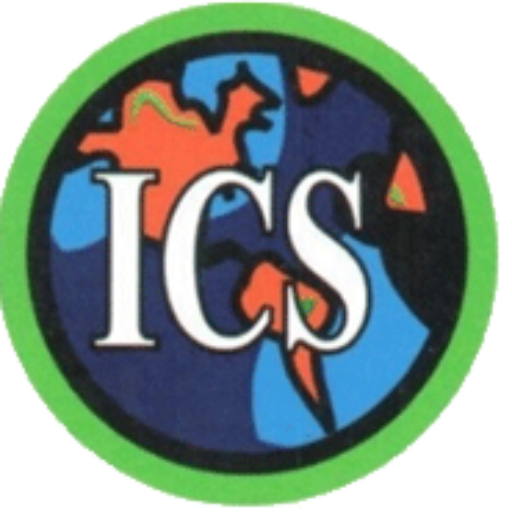International Community School
Special Education Needs (SEN)
SEN
Students will have special educational needs of some form during their educational journey. ICS believes that with targeted support and early intervention, most students are able to make significant progress, which enables them to return to regular classes at their grade level.
Special Needs Policy
1. Rationale
As a school we believe in early identification of these needs to enable us to give the best opportunity for all students to reach their potential. All children may have special educational needs at some time during their lives. With targeted support and early intervention, most children are able to make significant progress. This policy document is a statement of the way in which International Community School, Abuja aims to support all children in the school, including those who have some learning needs.
Children have a learning difficulty if they:
- have a significantly greater difficulty in learning than the majority of children of the same age; or
- have a disability which prevents or hinders them from making use of educational facilities of a kind generally provided for children of the same age.
Children must not be regarded as having a learning difficulty solely because the language or form of language of their home is different from the language in which they will be taught.
Special Educational provision means educational provision which is additional to, or otherwise different from the educational provision made generally for children of their age in school.
2. Special Educational Needs (SEN) and Admissions
ICS was founded as a mixed ability school, catering for a variety of learning needs. As a school, we accept a proportion of children with learning needs, some of which are specific in nature. We are able to cater for the needs of these children as long as their needs are not too severe and any additional support required is paid for by the parents.
Entrance to the school is not automatic for any student, and for those with SEN, the balance of the whole class must be considered. When applying, parents of children with SEN are invited to discuss their child’s needs with the school authority to ascertain whether ICS is a suitable school for their child, and if the specialisms and resources necessary are in place within the school. If after discussion it is felt by the school authority and Governors that we cannot meet a child’s needs, we will not be able to offer a place. In order to aid the decision-making process, all children will be assessed and interviewed.
“To give every student the entitlement to a sense of achievement”
3. Aims of the SEN Policy
To raise awareness and understanding within the school of how best to meet the needs of all students, including those with SEN.
- – To identify at the earliest opportunity students who require support above and beyond that which is provided for other children of their age.
- – To target student’s needs, to enable them to fully develop their abilities and interests, and to gain maximum access to the curriculum.
- – To involve parents, students and staff in developing a partnership of support, enabling them to have full confidence in the strategy adopted by the school.
- – To work in partnership with parents, students and where necessary external specialists in order to provide for the child’s needs.
- – To ensure that all students with SEN are given the opportunity to participate in all activities of the school, in order to promote the highest levels of achievement.
- – To give every student the entitlement to a sense of achievement.
4. Roles and Responsibilities
We have a SEN Coordinator (SENCo), who is responsible for coordinating the provision for students with SEN, and delivers some of the provision.
Teachers, teaching assistants and where available voluntary helpers work under the direction of the SENCo to support specific students.
The school management team and Governors have strategic responsibility for overseeing the provision for students with SEN.
5. Coordinating and Managing Provision
Teaching staff are involved in the implementing of the school’s SEN policy and should be involved in identifying, assessing, monitoring and making provision for students with SEN.
The following areas are the responsibility of the school authority and SENCo:
- – The daily implementation of the school SEN policy
- – Liaising with and advising teaching staff and teaching assistants on SEN matters
- – Managing TAs and voluntary helpers working outside the classroom
- – Coordinating the provision for children with SEN
- – Overseeing the records of all children with SEN and updating files
- – Contributing to the in-service training of staff
- – Liaison with parents and external specialists
- – Keeping the Special Needs Register up to date
- – Monitoring the production of Individual education plans (IEPs)
The following areas are the responsibility of Class teachers:
- – Referring concerns to the SENCo about students in the class who may have SEN
- – Monitoring and providing for children in the class with SEN
- – Writing and reviewing IEPs for children in the class with SEN
- – Liaison with parents
- – Managing TAs and voluntary helpers working within the classroom
- – Maintaining records of SEN children in the class.
we are part of the family. all the way through.
6. Identification of students with SEN
Students’ needs commonly fall under one or more of the following categories:
- – Attainment (such as Literacy and Numeracy);
- – Cognition (for example memory or thinking skills);
- – Physical (for example poor coordination or speech and language needs);
- – Emotional (for example behavior or low self-esteem);
- – Social (for example difficulty making and sustaining relationships).
When a child is admitted into the school, the assessment and interview process would usually indicate if a child had current needs in any of these areas. For Reception children we would identify concerns but would not implement any intervention for a quarter unless their needs are urgent. For older children entering the school with previously identified SEN, implementation of support would be immediate where possible. Otherwise, if concerns were raised by the assessment process, the child would enter the identification process detailed below. If a child meets our admissions criteria and enters the school with a Statement, we will continue to provide the support as specified in the Statement and supported documentation provided.
Where a teacher identifies pupils within this range during the school year, the following process would usually be followed:
- The teacher should bring the child to the attention of the SENCo, who will provide a Record of Concern form.
- The Record of Concern form will show the area of the concern about the student, and includes an opportunity for the teacher to record brief details about the concerns.
- The teacher, and SENCo where appropriate, will make observations of the child, and will then monitor the child’s progress over the next two Quarters. Notes will be kept in the class SEN file. The teacher will also have an informal discussion with parent(s) to make them aware of the concerns. The teacher will be responsible for setting appropriate targets and strategies to meet the student’s needs within the class setting.
- After two Quarters, the teacher will discuss the child’s progress with the SENCo. If it is felt that they have not made satisfactory progress in the area of concern, the child would then move to School Action.(step 5)
- At this stage the child requires input and support which goes above and beyond that which is provided by the usual differentiation in the class. It may be decided that the child should be assessed, and this would be carried out by the SENCo. The parents will be informed, and invited to meet with the teacher and SENCo. Targets will then be set, and an Individual Education Plan (IEP) set up by the class teacher for the child detailing the support that they will receive in school, and the ways in which parents can support their child at home. Where a child will require one to one support, the parents will be required to bear the cost.
- If pupils are withdrawn and given regular support in a small group setting, then a Group Education Plan will be set up, instead of an Individual Education Plan, as all of the children in the group will be working towards the same targets.
- The IEP will be reviewed quarterly with parents, with new targets being set where progress has been made.
- If there is inadequate progress at School Action (usually after two quarters), the teacher and SENCo will discuss whether there is a case for moving the child onto School Action Plus. At this stage support and advice from external specialists such as an educational psychologist will be recommended for further assessment. Parents may be asked to arrange for their child to have a full assessment undertaken by a private educational psychologist or other professional.
- A new IEP will then be drawn up for the child, incorporating the advice received from other specialists. This will suggest any further action, learning programs and extra support that the child needs. It will also show where the child has ongoing involvement with external specialists. This IEP will also be reviewed quarterly.
7. Evaluating Success
The success of the school’s SEN policy and provision is evaluated through:
- – Monitoring of classroom practice by the school authority
- – Analysis of pupil’s progress and assessment results at regular intervals by the SENCo and Class teacher
- – Regular review of IEPs for individual pupils
- – Discussion with staff to assess changes in attitude, behaviour and academic progress
- – Acknowledging and celebrating students’ progress and achieved targets
8. External Support
Parents may be advised to see their Doctor for any medical support that may be available to support their child’s development.

Students will have special educational needs of some form during their educational journey. ICS believes that with targeted support and early intervention, most students are able to make significant progress, which enables them to return to regular classes at their grade level.
